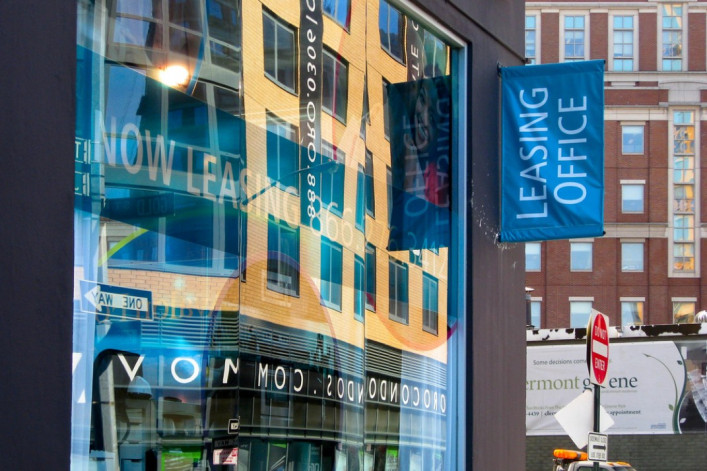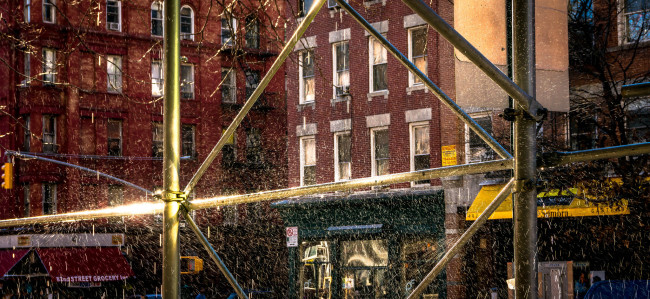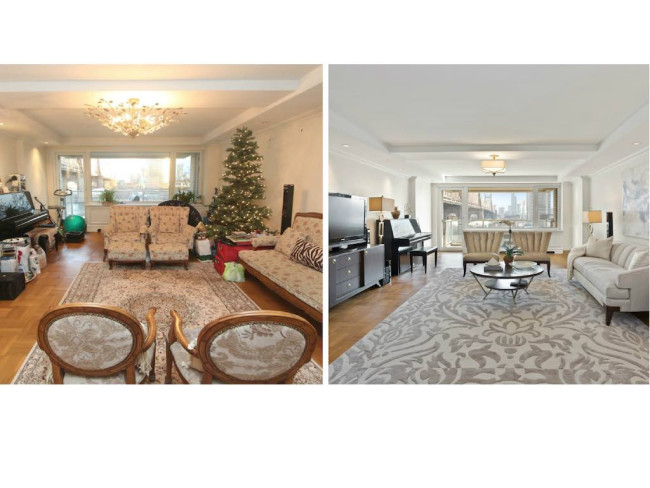12 reasons why that amazing NYC apartment is so cheap
You've found an amazing apartment, at an incredible price. Are you the luckiest person in New York, or is there something horribly wrong with the pad of your dreams? Either is possible. We talked with real estate industry professionals about how to tell a deal from a dud. Here's what they had to say.
1. The seller needs a cash deal
It makes sense: you need a buyer who can put up all cash, so you ask for less. The reasons a seller needs a cash buyer range widely, says Caroline Bass of Citi Habitats, but it's most often linked to a circumstance that prevents buyers from receiving financing from a bank, i.e., the bank won't lend money for the purchase because there's ongoing litigation against the building, or there are too many renters or sponsored-owned apartments.
"To open up the buyer pool, they make it as enticing as possible," Bass says.
2. Personal circumstances
Marie Bromberg of Corcoran files this under the general umbrella of "stress." Whether it's a death, divorce, or something else motivating the seller, "the owner needs to unload," she says. "In those cases usually speed is the priority and they want to take care of it right away."
3. The maintenance is high
There are many reasons why a building's maintenance could be unusually high (the taxes are high, the building is not well run), but regardless, high maintenance adds to your monthly nut. To compensate, sellers may lower the asking price. It's typically buyers new to the New York City market who miss this added expense, Bass says.
"If you're not familiar with New York City, you're not necessarily scrutinizing maintenance," she says.
4. There's a land lease
Land leases can be problematic for a couple of reasons. For one, a land lease means the building does not legally own the land it is constructed on, which can become an issue when the lease is up, or the building buys the land from the owner. But more immediately, apartments in buildings with land leases can experience recurring increases in maintenance fees, or step-ups, so in essence the price of an apartment will continue to rise, perhaps painfully so.
5. It needs a lot of work
Like, a lot. Beyond just the cosmetic, like a pink '70s bathroom that screams for redoing, structural issues could call for even more dramatic, expensive work, as Larry Friedman, a former Manhattan broker and now principal of the suburban flipping company SDF Capital, explains.
6. It's an income-restricted building
It could be relatively affordable because it's a form of affordable housing! Housing Development Fund Corporation co-ops have strict income caps for buyers, and typically, corresponding below-market asking prices. Should you qualify for an HDFC apartment, know that Bromberg often sees the sellers of these co-ops looking to "pay it forward" and find the right buyer, so are more prone to read personal letters and consider your "desirability" beyond just dollars and cents.
7. To accommodate uncertainty
The element of uncertainty can drive the asking price down. Bass uses the example of an apartment near where a new building was going up: would it block the view or allow light to reach the residence? The buyers would be taking a risk, and in this specific case, they decided to.
"The people who got it, got it at a deep discount," Bass says.
8. An over-ambitious initial asking price backfired
Ian Slater of Compass cites overpricing and seller frustration as a cause of a below-market asking price.
"The longer it's on the market, people are going to ask, 'What's wrong with it?'" he says.
Price cuts made to stir up interest may work, but they're also a record of an arbitrary valuation of an apartment that may ultimately limit what sellers can ask if, for example, the apartment is removed from the market and relisted.
"Everything is out there. It's historically available online," Slater says.
9. Construction is coming
If the building is undergoing some work soon, not only could you get hit with a hefty assessment, but you may have scaffolding over the facade for some time, as well as noise and dust to contend with.
10. A transit change is coming
Can you say, "L train shutdown"? An insanely convenient location can morph into a remote one with the flip of an MTA switch. Inconvenient? Yes. But Bass also says she thinks there's value to be found in temporarily annoying circumstances. "[The L train shutdown] is going to go away," she says. "It's not going to be ideal, but it's not forever."
11. A tenant is in place
If someone lives in the apartment, the buyer essentially inherits that tenant.
"It's a very special person who buys one of those," Bass says. Should the buyer want to live there and the tenant be protected by rent regulation, options include buying the tenant out—in amounts that can range from tens to hundreds of thousands—or buying the tenant a new place to live. Complicated and costly? Yes. But for some, worth the investment and hassle.
12. The view is temporary
Are the views spectacular? Make sure they're not going away. Slater recalls a Lower East Side apartment with stunning views that a client was seriously considering, until some research revealed that four lots to the north had rolled their tax lots into one. A major development was in the works that would block those special vistas.
In conclusion
That's a lot to keep in mind, but the good news is that a good broker will likely either already know about a building's issues, or can find out. Similarly, a competent real estate attorney will help root out underlying problems and red flags. But it's all relative; one buyer's deal-breaker is no big deal to another. "Some people have a higher risk tolerance," Bass says.
"There's always a reason," Slater says. "It's just a matter of finding out what that is and how much you can stomach it."





























